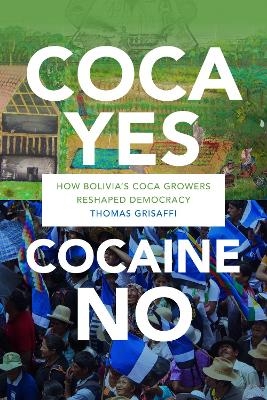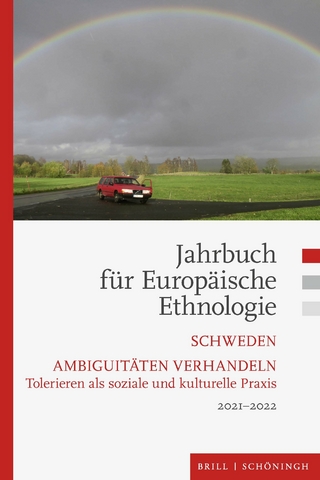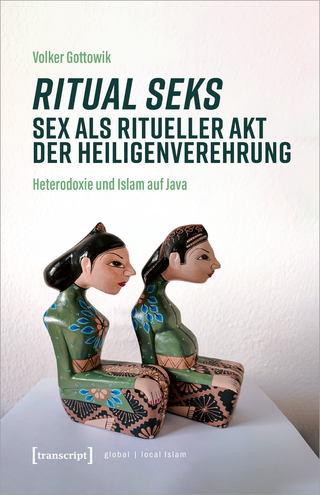
Coca Yes, Cocaine No
How Bolivia's Coca Growers Reshaped Democracy
Seiten
2019
Duke University Press (Verlag)
978-1-4780-0171-3 (ISBN)
Duke University Press (Verlag)
978-1-4780-0171-3 (ISBN)
Thomas Grisaffi traces the political ascent and transformation of the Movement toward Socialism (MAS) from an agricultural union of coca growers into Bolivia's ruling party, showing how the realities of international politics hindered MAS leader Evo Morales from scaling up the party's form of grassroots democracy to the national level.
In Coca Yes, Cocaine No Thomas Grisaffi traces the political ascent and transformation of the Movement toward Socialism (MAS) from an agricultural union of coca growers into Bolivia's ruling party. When Evo Morales—leader of the MAS—became Bolivia's president in 2006, coca growers celebrated his election and the possibility of scaling up their form of grassroots democracy to the national level. Drawing on a decade of ethnographic fieldwork with coca union leaders, peasant farmers, drug traffickers, and politicians, Grisaffi outlines the tension that Morales faced between the realities of international politics and his constituents, who, even if their coca is grown for ritual or medicinal purposes, are implicated in the cocaine trade and criminalized under the U.S.-led drug war. Grisaffi shows how Morales's failure to meet his constituents' demands demonstrates that the full realization of alternative democratic models at the local or national level is constrained or enabled by global political and economic circumstances.
In Coca Yes, Cocaine No Thomas Grisaffi traces the political ascent and transformation of the Movement toward Socialism (MAS) from an agricultural union of coca growers into Bolivia's ruling party. When Evo Morales—leader of the MAS—became Bolivia's president in 2006, coca growers celebrated his election and the possibility of scaling up their form of grassroots democracy to the national level. Drawing on a decade of ethnographic fieldwork with coca union leaders, peasant farmers, drug traffickers, and politicians, Grisaffi outlines the tension that Morales faced between the realities of international politics and his constituents, who, even if their coca is grown for ritual or medicinal purposes, are implicated in the cocaine trade and criminalized under the U.S.-led drug war. Grisaffi shows how Morales's failure to meet his constituents' demands demonstrates that the full realization of alternative democratic models at the local or national level is constrained or enabled by global political and economic circumstances.
Thomas Grisaffi is Lecturer in the Department of Geography and Environmental Science at the University of Reading.
Acknowledgments vii
Introduction: To Lead by Obeying 1
1. The Rise of the Coca Unions 27
2. The Lowest Rung of the Cocaine Trade 58
3. Self-Governing in the Chapare 84
4. From Class to Ethnicity 109
5. Community Coca Control 128
6. The Unions and Local Government 150
7. The Coca Union's Radio Station 173
Conclusion 192
Notes 203
References 215
Index 249
| Erscheinungsdatum | 09.01.2019 |
|---|---|
| Zusatzinfo | 28 illustrations |
| Verlagsort | North Carolina |
| Sprache | englisch |
| Maße | 152 x 229 mm |
| Gewicht | 499 g |
| Themenwelt | Sozialwissenschaften ► Ethnologie ► Völkerkunde (Naturvölker) |
| Sozialwissenschaften ► Ethnologie ► Volkskunde | |
| Sozialwissenschaften ► Soziologie | |
| ISBN-10 | 1-4780-0171-2 / 1478001712 |
| ISBN-13 | 978-1-4780-0171-3 / 9781478001713 |
| Zustand | Neuware |
| Haben Sie eine Frage zum Produkt? |
Mehr entdecken
aus dem Bereich
aus dem Bereich
Schweden : Ambiguitäten verhandeln - Tolerieren als soziale und …
Buch | Softcover (2023)
Brill Schöningh (Verlag)
49,90 €
Buch | Softcover (2023)
transcript (Verlag)
54,00 €


